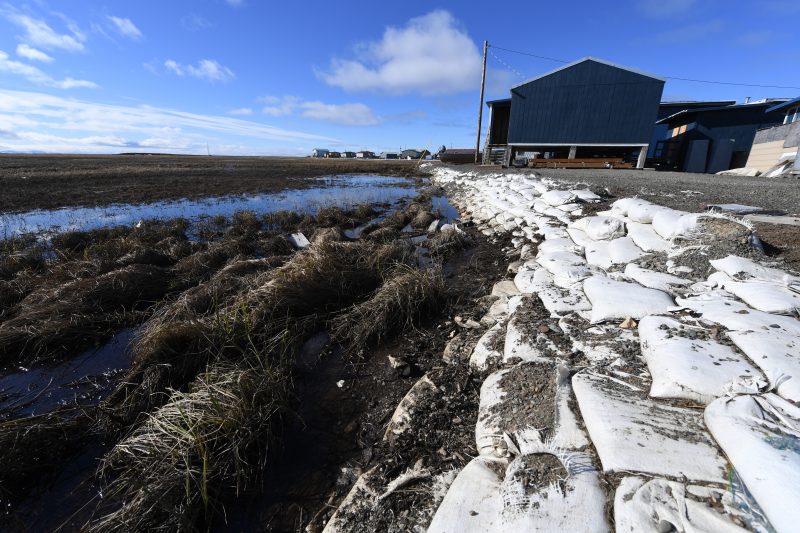US presses industry-friendly climate stance in Arctic
Melting permafrost tundra is seen in April 2019 in the town of Quinhagak in Alaska, where global warming has been occurring at twice the global average (Mark RALSTON)
Washington (AFP) – The United States is seeking a business-friendly approach to climate change at an upcoming meeting of Arctic powers, a US official said Thursday, amid a report that Washington is trying to eliminate language on warming.
Secretary of State Mike Pompeo is set to travel Monday to the northern Finnish city of Rovaniemi for talks of the eight-nation Arctic Council, hoping to demonstrate firm US interest as China steps up investment in northern areas made increasingly navigable by melting ice.
A US official said that negotiations were ongoing about how the Arctic Council will address climate.
“When we don’t agree with our friends and allies, we talk with them about it directly, we engage with them closely, and that’s what we’re doing in the Arctic Council,” the official told reporters on condition of anonymity.
“Climate is a complex global issue and it’s a global challenge all around, and this administration supports a balanced approach that promotes economic growth and improved energy security while protecting the environment,” she said.
The Washington Post, quoting unnamed diplomats, said that US negotiators have sought to remove references to climate change from an Arctic Council declaration before Pompeo would sign off on it, eager to avoid any international commitment, however non-binding, on the issue.
President Donald Trump has mocked global efforts to combat climate change, saying they are unfair to US industry, and withdrew the United States from the 2015 Paris climate accord negotiated partly by his predecessor Barack Obama.
Pompeo has said that he accepts the wide scientific consensus that temperatures are rising but that he does not consider the issue to be a top priority.
Global temperatures have risen one degree Celsius (1.8 Fahrenheit) since pre-industrial levels. The Paris agreement enjoined countries to keep the rise “well below” two degrees Celsius.
But the world is far off-track to meeting that goal, with a UN report last year finding that a 1.5-degree rise will likely occur as early as 2030.
The report warned that warming between 1.5 and 2 degrees will likely increase devastating heatwaves and other disasters and, with the melting of Arctic sea ice, could lift ocean levels by a dozen meters, beyond the point of no return for low-lying coastal areas.
Disclaimer: Validity of the above story is for 7 Days from original date of publishing. Source: AFP.


